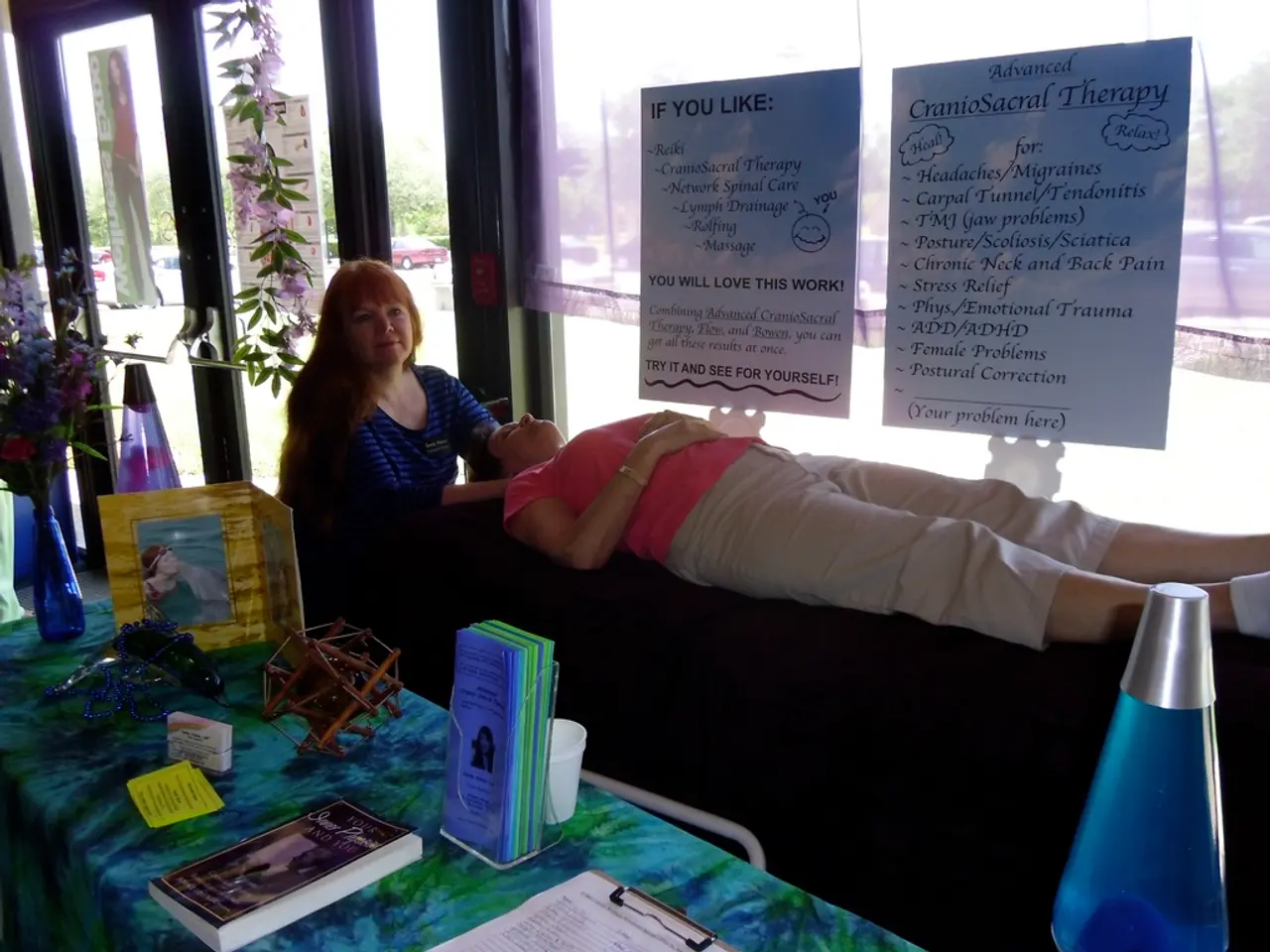Strategies for Adults Confronting Sleep Issues in a Multiple-Part Guide, Featuring Expert Advice
Sleep Cycle, a leading sleep technology company based in Gothenburg, Sweden, has announced the release of a new video series aimed at helping adults manage their sleep. The series, available now on the Sleep Cycle website, leverages the company's extensive knowledge and expertise in the field, as well as over 3 billion analyzed sleep sessions for unparalleled accuracy and personalized guidance.
The video series presents several science-backed techniques for managing stress, anxiety, and hormonal changes to improve sleep quality. Key strategies highlighted include progressive muscle relaxation, mindfulness and meditation, healthy sleep habits, and gradual wind-down routines.
Progressive muscle relaxation involves consciously relaxing the body part by part to break the "stress loop" that can signal danger to the brain, activating the fight-or-flight response. By relaxing muscles, a safety signal is sent to the nervous system, helping the mind calm down and making it easier to fall asleep. This technique, historically effective for WWII pilots under extreme stress, remains very effective today with regular practice.
Incorporating mindfulness-based stress reduction (MBSR), which combines meditation, body awareness, and gentle yoga, reduces stress and anxiety levels, aiding sleep onset and quality. Deep breathing exercises, guided imagery, and soothing music can also promote relaxation before bedtime.
Maintaining good sleep hygiene supports hormonal regulation and stress reduction. Recommendations include avoiding caffeine, alcohol, sugary, and fatty foods in the hours before bed, establishing a relaxing wind-down routine, and avoiding stimulating activities or media near bedtime. Keeping a sleep diary to track habits and stress can help identify factors impacting sleep quality.
Sleep is not an instant process but a gradual physiological transition. Techniques such as light stretching, meditation, or reading before bed can help ease this transition. Avoiding screens and bright light is advised to prevent overstimulation.
The video series also provides actionable strategies for dealing with sleep issues specific to menopause. Menopause causes hormonal shifts that disrupt sleep by affecting thermoregulation, leading to night sweats, insomnia, and increased snoring. The series offers tips for temperature regulation, positional therapy for snoring, and optimizing sleep environments to help improve sleep quality during menopause.
The likelihood of snoring and obstructive sleep apnea increases significantly during menopause. The series introduces cognitive refocusing, breathwork, and mindfulness body scanning as techniques to reduce hyperarousal and promote deep, restorative sleep.
According to Dr. Mike Gradisar, Head of Sleep Science at Sleep Cycle, understanding what happens during the night is essential for knowing what can be done to improve sleep. The video series is presented by Dr. Gradisar, who shares insights from two decades of research and clinical practice.
Erik Jivmark, CEO of Sleep Cycle, states that the goal of the video series is to empower people with knowledge and tools to improve their sleep naturally. The series offers simple, effective solutions for dealing with stress, anxiety, and hormonal changes to help users fall asleep faster and wake up feeling refreshed.
Sleep Cycle is dedicated to making healthy sleep accessible to everyone. For more information about the video series, please contact Jonna Grenfeldt at jonna.grenfeldt@our website or +46 70 735 7539. Sleep Cycle is listed on Nasdaq Stockholm under the ticker SLEEP.
The video series by Sleep Cycle includes strategies for improving sleep quality, such as progressive muscle relaxation, which helps calm the mind by deliberately relaxing muscles and signaling safety to the nervous system. The series also addresses sleep issues specific to women going through menopause, providing tips for temperature regulation, positional therapy for snoring, and optimizing sleep environments to help manage night sweats, insomnia, and increased snoring.




